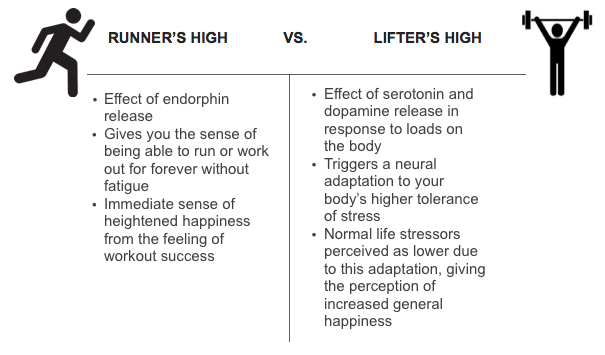Many runners experience a runner's high which is defined as "a feeling of euphoria that is experienced by some individuals engaged in strenuous running and that is held to be associated with a release of endorphins by the brain." It is that moment where pain becomes pleasure, confidence is soaring, and the runner feels like a powerful machine in the midst of suffering. It seems to me the runner's high has a type of tolerance opposite to that of drugs or "reverse tolerance." Previously mentioned, addicts need more of the drug to get high. Let's say it takes someone one pill to feel high as a recreational drug user. As the addiction progresses this individual now needs four times as many pills to experience the same feeling. As a runner, I've noticed that I need less of the running in order feel that powerful euphoria. For example, let's say I've returned to consistent running after an absence of a few months or I'm a "new runner." For the first two weeks, I might feel that runner's high late in the run, maybe around mile seven. It takes a lot of running for me to feel good, however, over time, I experience that same feeling at mile six, then five, then four, and so on. I'm experiencing a reverse tolerance in which I need less of the drug (running) on order to experience the high. This might be one of the reasons why people who do not run sometimes think runners are crazy. They've never run for long enough to feel great in the moment or feel the runner's high. They've only experienced the pain of miles one through six before giving up.
Go out and run, it makes you feel alive.

 RSS Feed
RSS Feed
